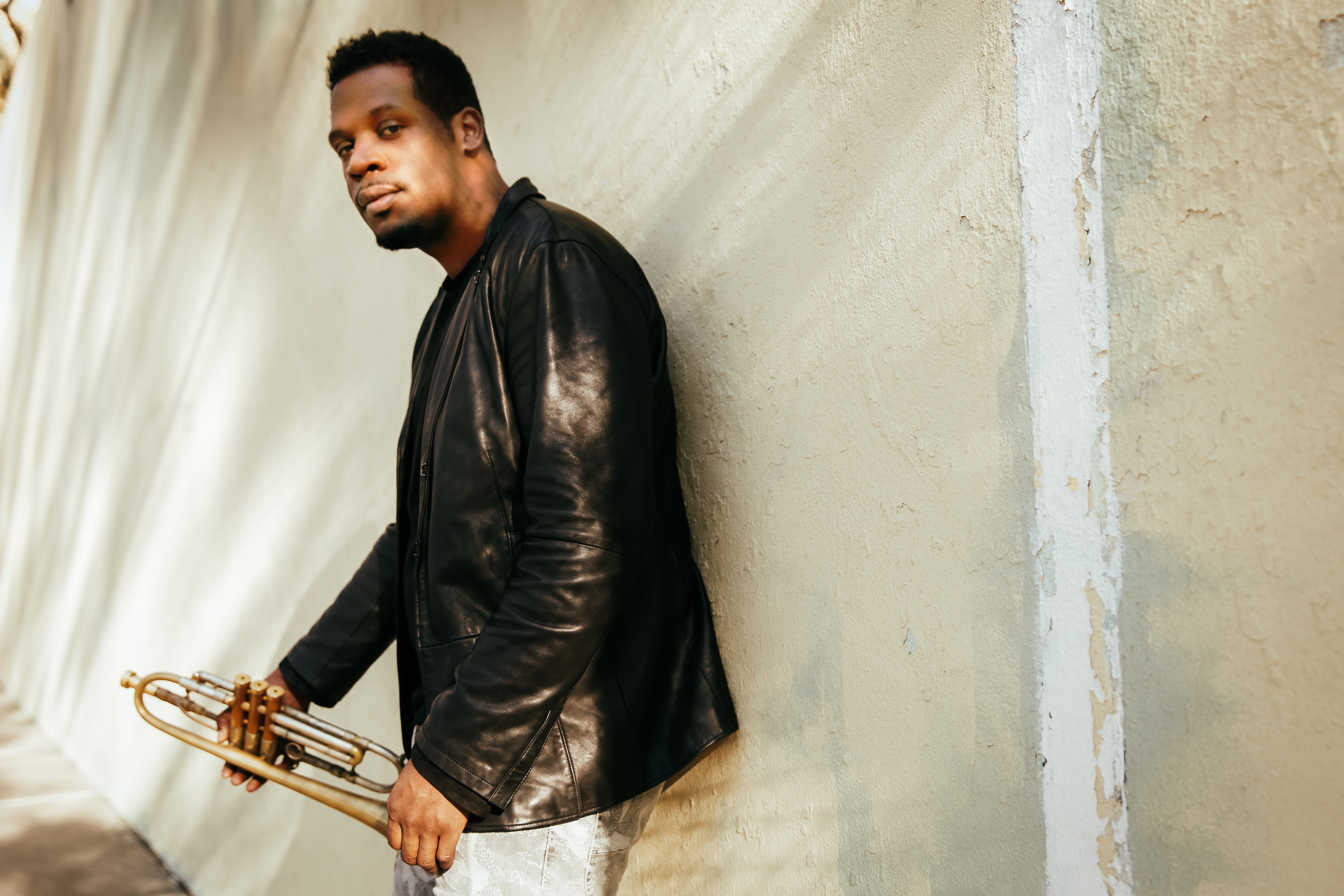
To bring Miles Davis to life in Miles Ahead, Don Cheadle learned to play the trumpet and used his new skills to improv many scenes. But, to truly capture Davis’ expertise, Cheadle hired Keyon Harrold, a world class trumpeter who’s played for many of music’s biggest names like Jay Z, Beyoncé, Erykah Badu, Common, and Rihanna.
We spoke to Harrold, who has an album in the works, an learned a little more about the artist who helped bring Miles Davis to the big screen. Here are five things we learned.
1. He Grew Up In Ferguson, Missouri
Ferguson has becomes synonymous with the shooting of Michael Brown and racial inequality, something Harrold was very aware of growing up. “Growing up in Ferguson was a microcosm of everything systemically wrong with Black America. I had some sense of this growing up and certainly practiced my butt off to earn a ticket out of there but, having been there recently, I saw even more clearly how much work there is to be done to counteract the crippling miseducation of so many economically-challenged people. The de facto economic sanctions and racial divide are so imbedded that it was and continues to be accepted as normal.”
And, moving to NYC was an eye-opening experience for the trumpeter. “It was a night and day difference in terms of feeling accepted as a black man. I know many feel NYC has a ways to go and may be surprised by this statement. But perhaps this is more of a statement of how far worse some of these smaller majority black cities in America remain.”
2. He Wanted To Learn The Drums Before Picking Up The Trumpet
“My grandfather directed a drum and bugle corp that taught thousands of youth the discipline of learning an instrument and making real music. The thing was that my grandfather was about harmony in the music sense. He required all of his grandsons to learn how to play the trumpet before he allowed us to to learn percussion instruments. Long story short, I progressed too fast to even get a chance to look back at the drums.”
Subscribe to our daily newsletter for the latest in hair, beauty, style and celebrity news.
Despite his initially desire to be a drummer, Harrold has fallen in love with the trumpet, its sound, and its history. “The trumpet complements arrangements so well that it inadvertently changes its lead nature. Trumpeters like Louis Armstrong and Miles Davis are voices that personally inspired and also became embedded world culture. They have used the trumpet in a way that speaks to people, which is ultimately what I aspire to do with my horn. Historically, the trumpet is a call to action like the bible story of the Battle of Jericho–the beauty, majesty, and strength of the trumpet was used to bring down the walls.”
3. Playing For Miles Ahead Was A Welcome Challenge
For Miles Ahead, Harrold had to match his sound with that of Davis’ while making sure Cheadle’s performance as the iconic jazz trumpeter came to life flawlessly. “This film presented unique challenges that intrigued me. I had to produce and compose performances that would make the sound track and score sound “Miles-esque” at times. And I needed to make Don Cheadle’s incredible performance as Miles seem as though he were playing. I had to compose phrases to sync Don’s fingerings and Don’s facial muscle expressions. And I had to do so after he filmed his scenes. The sequencing of that process and getting it all perfectly aligned was stimulating.”
4. “Blue in Green” Is The Go-To Song For Anyone Being Introduced To Davis
“It’s the epitome of moody, beauty, sensuality, mastery, and creativity from the quintessential jazz album, Kind of Blue.”
5. He Performed At The White House Alongside Common During Obama’s Presidency
Harrold had the privilege of performing at the White House for NPR’s Tiny Desk series alongside Common, a surreal moment for the talented trumpeter from a small town. “It was a memorable experience. That made me reflect on how far I have come from Ferguson to the White House powered by God and a horn. My trumpet feature on “Letter to the Free” was my reaction to all of those reflective emotions being in that sacred environment playing such an important song.”






